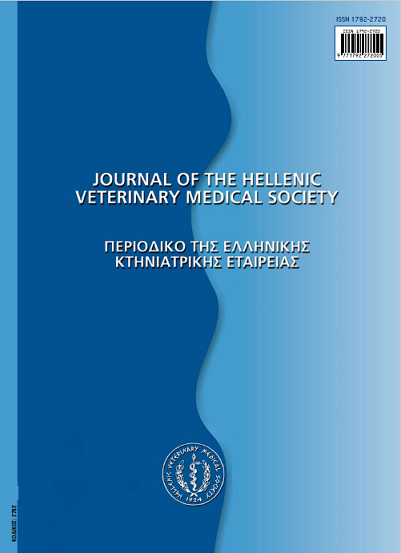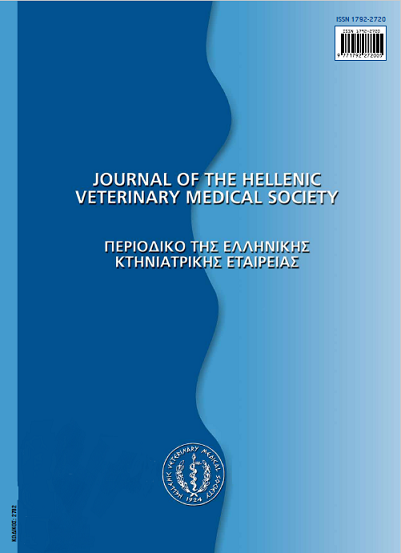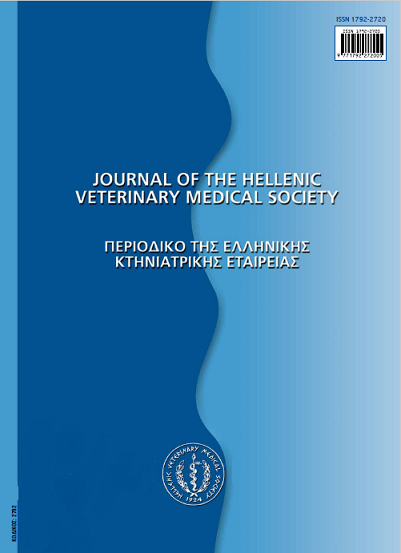Influence of high ambient temperature on reproductive performance and physiology of rabbit does in a commercial rabbitry in Greece
Abstract
The reproductive performance and physiological traits of intensively raised does were evaluated under farm conditions in Greece, during the hot (average farm temperature 19.5°C) and cold period (average farm temperature 12.4°C). The size of litter at birth (6.94 vs. 7.84 alive pups, P<0.001), the size of litter at weaning (5.95 vs. 7.06, P<0.001), the pre-weaning mortality rate (16.94% vs. 9.60%, P<0.001, the number of born dead (0.39 vs. 0.19, P<0.001) and the number of stillborn (0,05 vs 0,02 P<0.01) were significantly affected during the hot period, while litter weight and individual weight at birth did not seem to differ between hot and cold period (461 g vs. 466 g (P<0.05) and 68 vs. 65 g (P<0.05), respectively). Rectal temperature of does and respiration rate were higher in the hot period (39.09°C vs. 38.93°C (NS) and 128.08 respirations/min vs. 115.37 respirations/min; P<0.001). The effects of parity order and animals were also studied revealing that parity order influenced significantly total born, born alive, stillborn and weaned rabbits, litter weight and individual weight at birth, as well as the does' respiration rate. The interaction between parity and period was not significant for any of the recorded parameters. In conclusion, high ambient temperature impaired does' reproductive and physiological traits under those conditions, similar to most natural environmental conditions in Greece.
Article Details
- Zitationsvorschlag
-
XYLOURI-FRAGIADAKI (Ε. ΞΥΛΟΥΡΗ-ΦΡΑΓΚΙΑΔΑΚΗ) E., GOLIDI (Ε. ΓΟΛΙΔΗ) E., MENEGATOS (Ι. ΜΕΝΕΓΑΤΟΣ) I., & LUZI, F. (2018). Influence of high ambient temperature on reproductive performance and physiology of rabbit does in a commercial rabbitry in Greece. Journal of the Hellenic Veterinary Medical Society, 54(2), 119–130. https://doi.org/10.12681/jhvms.15247
- Ausgabe
- Bd. 54 Nr. 2 (2003)
- Rubrik
- Research Articles
Authors who publish with this journal agree to the following terms:
· Authors retain copyright and grant the journal right of first publication with the work simultaneously licensed under a Creative Commons Attribution Non-Commercial License that allows others to share the work with an acknowledgement of the work's authorship and initial publication in this journal.
· Authors are able to enter into separate, additional contractual arrangements for the non-exclusive distribution of the journal's published version of the work (e.g. post it to an institutional repository or publish it in a book), with an acknowledgement of its initial publication in this journal.
· Authors are permitted and encouraged to post their work online (preferably in institutional repositories or on their website) prior to and during the submission process, as it can lead to productive exchanges, as well as earlier and greater citation of published work.





